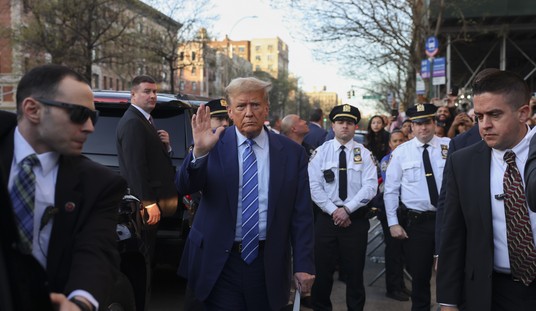What exactly did President Obama gain by conceding the planned missile defense system based in Eastern Europe to the Russians? The NY Times says that the Russians may still not be satisfied with the missile architecture changes aimed at (1) removing any appearance of US influence on NATO members in Eastern Europe; and (2) rearchitecturing the missile system to be explicitly nonthreatening to Russia. The answer may be ‘nothing’ — so far.
“The Russians are probably not going to be pleased that we are continuing with missile defense efforts in Europe,” said Defense Secretary Robert M. Gates. “But at the same time, there are two changes in this architecture that should allay some of their, what we think, unfounded concerns.” Those would be the elimination of the radar in the Czech Republic and the switch to smaller missiles that “they simply cannot, at least rationally, argue bears any kind of threat to Russia,” he said. … But does the new missile defense architecture outlined by Mr. Obama actually satisfy Russian objections? That remains a more complicated question. …
Several Russian lawmakers, analysts and other leading figures called the Obama decision a concession to Moscow. But President Dmitri A. Medvedev was more cautious as his team evaluated the new plan. He praised Mr. Obama’s “responsible approach” but gave no further indication as to whether Moscow was finally satisfied.
Russia’s worries may have been political, rather than operational. The handful of missiles in Europe never represented any credible threat to them, but the political signal missile defense sent to former Eastern European countries was more worrisome. To some, it was a “tripwire”, a symbol of American commitment to the former Eastern Europe. To others it was a needless provocation of a great power. President Obama’s public withdrawal settles the debate: it sends a clear signal to Eastern Europe that, whatever their official NATO status may be, there is a definite limit to the amount of support they can expect from the current administration. Eastern Europe has been Finlandized. But the withdrawals have not been reciprocal so far. Even as the US was exiting Russia’s former “near abroad”, Venezuela’s Hugo Chavez continued to approach the Russians for nuclear power and weapons assistance. Breitbart describes Chavez’s latest efforts:
Venezuelan President Hugo Chavez was to meet Russian counterpart Dmitry Medvedev on Friday after Russia risked Washington’s wrath by offering the fierce US foe help developing nuclear energy.
The two were to meet in the city of Orenburg after hawkish Prime Minister Vladimir Putin told Chavez in Moscow on Thursday that Russia was “ready to consider the possibility of cooperation in nuclear energy.” The countries have boosted ties in recent weeks following sharp US criticism of Russia’s incursion into Georgia, with Moscow dispatching long-range bombers and warships to Venezuela for exercises near US waters.
Putin made the nuclear offer after Russia this week delayed talks with the United States and other powers on fears Iran is developing nuclear weapons, concerns critics say have been exacerbated by civilian nuclear technology provided by Moscow.
Some may argue that the United States, being more powerful than Russia, should concede more to keep the sacrifices equivalent. But it is not entirely strength which is at issue, but will. Reuters reports that the Western Europeans are planning to make security arrangements with Russia.
BRUSSELS (Reuters) – NATO urged Russia on Friday to work with it on missile defense and proposed looking at ways eventually to link U.S., NATO and Russian anti-missile systems. One day after Washington scrapped a missile defense plan for Europe which Russia opposed, NATO Secretary-General Anders Fogh Rasmussen said Russia and the Western defense alliance should conduct a joint review of the security challenges they face. … “I would like Russia and NATO to agree to carry out a joint review of the new 21st century security challenges, to serve as a firm basis for our future cooperation,” Rasmussen said in a speech in Brussels. “We should explore the potential for linking the U.S., NATO and Russian missile defense systems at an appropriate time.” … It had been considering moves to complement the scrapped U.S. system to extend the area it would have protected.
With Russia still dissatisfied (according to the NYT) perhaps more assurances are in order. It’s a big downpayment for yet an unspecified amount of goodwill from Iran and Russia. What benefits will the world get from the administration’s actions? What diplomatic breakthroughs? What engagements? Let us wait and see.









Join the conversation as a VIP Member